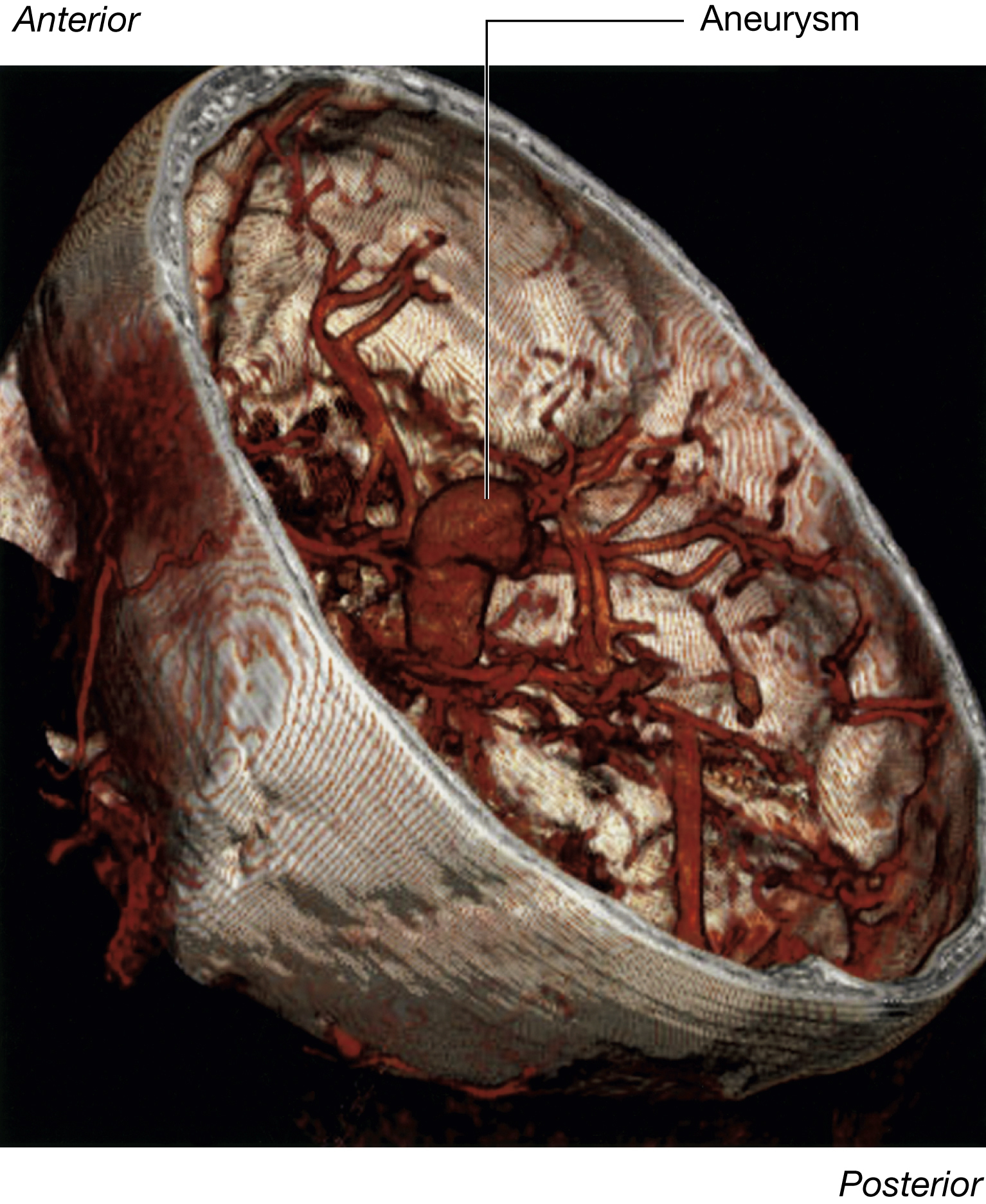cerebral aneurysm [L, cerebrum, brain; Gk, aneurysma, a widening] , an abnormal, localized dilation of a cerebral artery. It is most commonly the result of congenital weakness of the tunica media or muscle layer of the arterial wall. Cerebral aneurysms may also be caused by infection, such as occurs in subacute bacterial endocarditis or syphilis, and by neoplasms, arteriosclerosis, and trauma. The most frequent sites are the middle cerebral, internal carotid, basilar, and anterior cerebral arteries, especially at bifurcations of vessels. Cerebral aneurysms may occur in infancy or old age. They may be fusiform dilations of the entire circumference of an artery or saccular outcroppings of the side of a vessel. The outcroppings may be as small as a pinhead or as large as an orange but are usually the size of a pea. Cerebral aneurysms pose a danger of rupture and intracranial hemorrhage.

